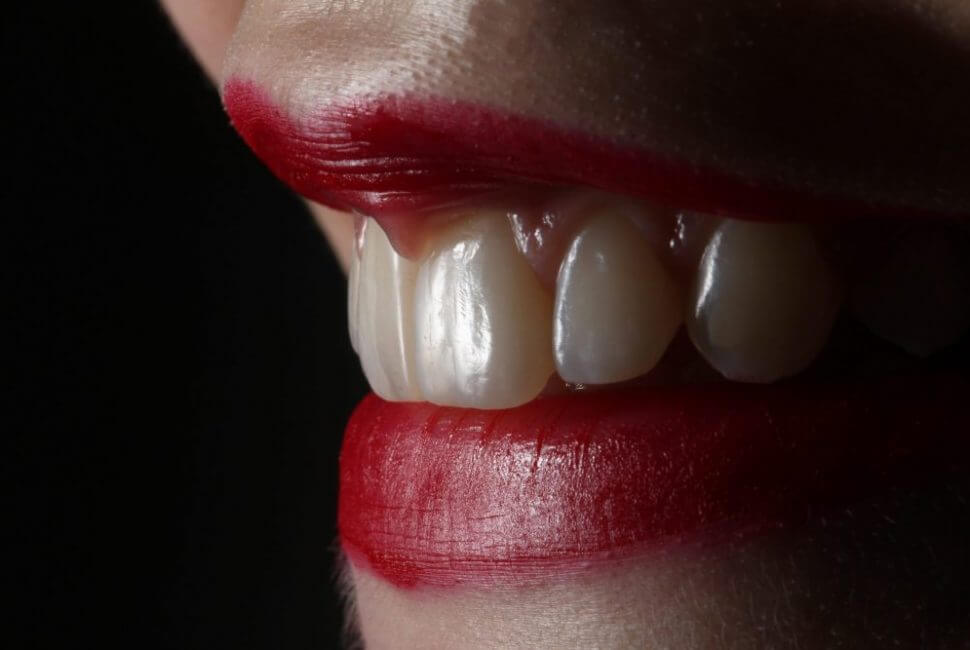Dental Erosion: Symptoms and Treatment

Dental erosion is the loss of tooth enamel caused by the acids we eat and drink, or sometimes from acids coming up from your stomach. Enamel is the thin yet very strong protective layer of the tooth, which protects them from excessive chewing, biting, crunching, and grinding. Enamel also protects the teeth from painful temperatures and chemicals.
Why Is Enamel Erosion Bad?
When the enamel erodes, the dentine underneath is exposed, leading to pain, sensitivity, and discolouration (yellow or stained teeth).
Equally, damaged enamel makes teeth more susceptible to tooth decay or, in the worst case – tooth abscess.
What Are the Symptoms of Enamel Erosion?
The symptoms of enamel erosion vary from person-to-person. Some typical signs may include:
- Sensitivity or pain to certain foods (hot, cold, fizzy, sugary).
- Discoloration. The teeth may appear yellow or stained.
- Tooth cupping. Small indentations or cups begin to develop on the chewing surfaces of the teeth.
- Cracks and chips. The edges of teeth become more rough, irregular, and jagged.
If not treated early, enamel erosion can lead to complications like:
- Permanently yellow, stained teeth
- Overly sensitive teeth
- Regular tooth decays
- Fractured teeth
What Causes Dental Erosion?
Tooth erosion happens when acids (from foods or your gut) wear down the enamel on teeth. Enamel erosion can be caused by the following:
- Sugary foods. Bacteria thrive on sugar that can produce excess acids.
- Sugary drinks (like fizzy drinks and fruit juices). Fizzy drinks contain citric acid and phosphoric acid in addition to excess sugar.
- Dry mouth or low saliva flow (xerostomia). Saliva constantly neutralizes acid in your mouth to protect your teeth.
- Acid reflux disease or heartburn. These bring stomach acids up to the mouth, where they can damage enamel.
- Any condition that causes regular vomiting – people who misuse alcohol or suffer from bulimia damage their teeth through regular vomiting. Vomiting exposes the mouth to stomach acids.
- Stress or chronic anxiety. Jaw clenching and teeth grinding cause friction, abrasion, and corrosion, which damages the enamel.
How to Prevent Enamel Loss?
To prevent enamel loss, follow the basic mouth hygiene routine. You should brush your teeth at least twice a day with fluoride toothpaste, floss once a day, and rinse with antiseptic mouthwash in-between snacks. See your dentists every 6 months for regular check-ups.
You should also try the following these recommendations:
- Limit highly acidic foods and drinks in your diet (fizzy drinks, lemons or limes, fruit juices). If you choose to have them, rinse your mouth right away with clear water to wash away the acids.
- Use a straw when you drink acidic drinks. The straw pushes the liquid to the back of your mouth, avoiding your teeth.
- Reduce sugary or starchy snacking. The mouth is acidic for a few hours after eating foods high in sugar and starches.
- Chew sugar-free gum between meals. Chewing gum increases saliva production. Saliva helps to balance out the acids in the mouth.
- Drink a glass of plain water after every meal. This helps to rinse out the acids and helps to keep the mouth hydrated.
- Wait at least 1 hour to brush your teeth after you’ve had acidic foods or drinks. Acidic foods/drinks soften the enamel and make it more prone to damage from your toothbrush.
How to Treat Dental Erosion
Talk to your dentist. Your dentist can explain how your food choices affect your teeth and what you can do to help yourself further.
Usually, tooth bonding is enough to repair the damaged tooth or teeth. Tooth bonding is a procedure in which a resin (tooth-coloured material) is applied to the damaged tooth. Bonding can also help to decrease your sensitivity.
In more severe cases you may need to fit a veneer or crown to your damaged teeth to prevent further decay.
You can contact us to get a free consultation today. We’ll provide you with the steps needed to prevent your teeth from further damage.


